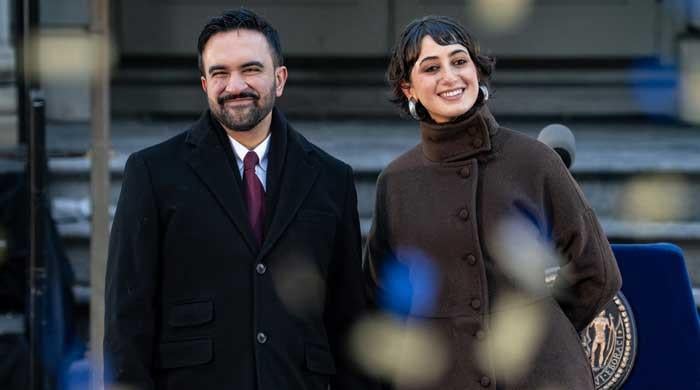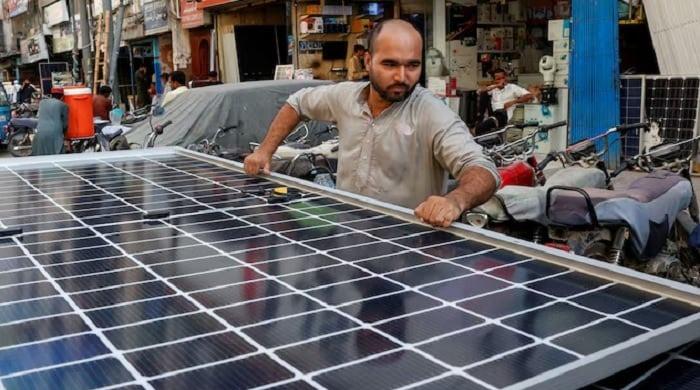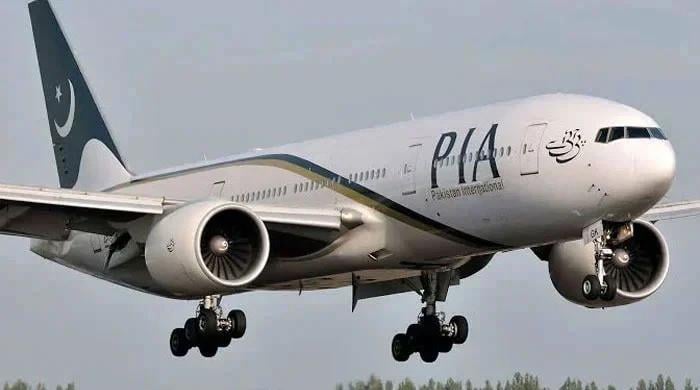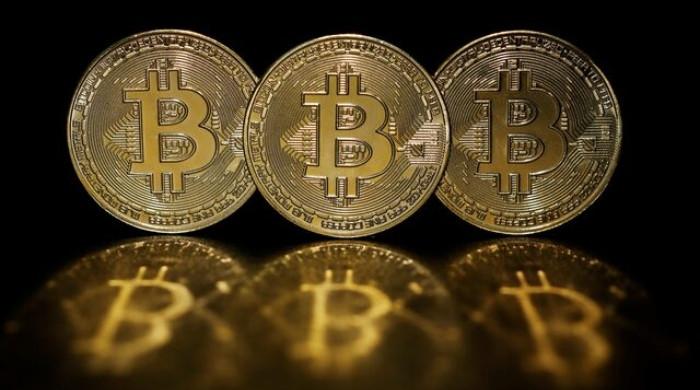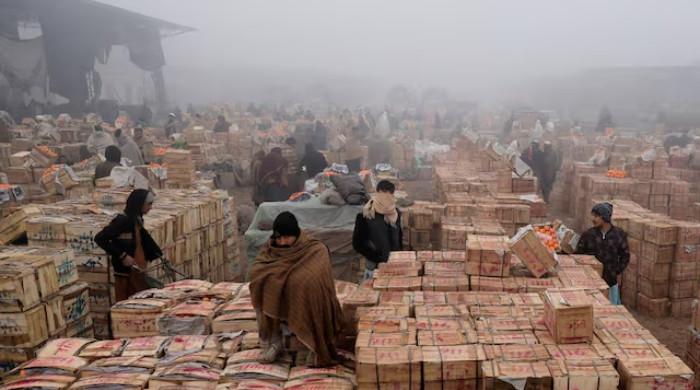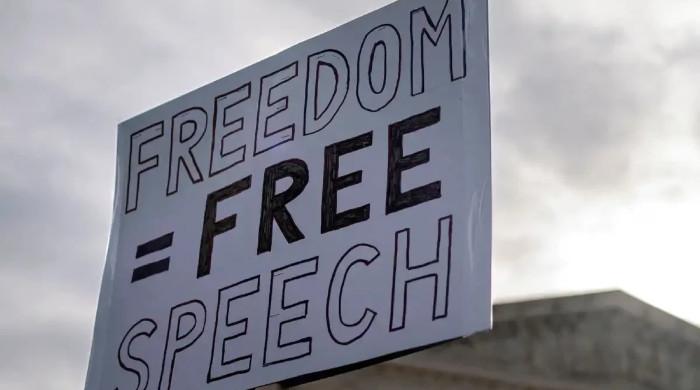PML-Q: Party for all seasons
Chaudhrys of Gujarat have always remained establishment's natural ally from the days of late Chaudhry Zahour Elahi
December 15, 2022
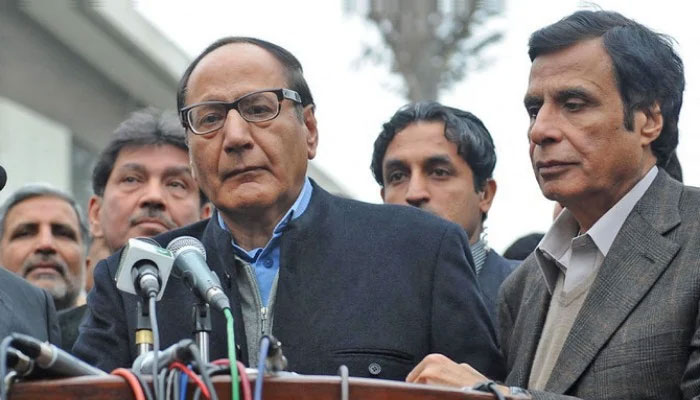
It was after former prime minister Zulfikar Ali Bhutto was hanged on April 4th, 1979 that military dictator General Zia ul Haq — to fulfil his political ambition and prolong his rule — not only needed legitimacy but also political support to counter Bhutto’s charisma which refused to die even after his death. He was more popular in Punjab than in Sindh and they needed someone to challenge PPP’s popularity.
The Chaudhrys of Gujarat always remained establishment's natural ally from the days of late Chaudhry Zahour Elahi, who had political rivalry with Bhutto and was later assassinated allegedly by Al-Zulfiqar militant group formed to take revenge for Bhutto's death.
So, had the establishment picked Chaudhrys’ at that point the political polarisation would have favored PPP so they looked for a new ally and found one through one Ayub Khan day’s Brig Qayyum, said to be close to both former governor of Punjab, late General (retd) Ghulam Jillani and elder Mian Mohammad Sharif. The latter, though also hated Bhutto for "nationalising" his Ittefaq Industries, had no political ambitions.
An unimpeachable source close to Sharifs' revealed that an offer through Gen (retd) Jillani, Gen (retd) Iqbal was made on behalf of Gen Zia that his industries would be returned and would continue to flourish his business but was asked to allow his son Mian Nawaz Sharif to come into politics. He was later made the finance minister.
It was the beginning of a political innings of Nawaz Sharif and while Ch Shujaat Hussain and co remained the establishment's permanent ally and were asked to back Sharif, Gen Zia wanted an urban oriented business family to counter the popular PPP and to promote the culture of privatisation and business oriented politics.
Zia prolonged his rule by holding elections on a non-party basis and then allowed his hand picked to form the Pakistan Muslim League. While the Sharifs' and Chaudhrys' were on his side, he picked a Sindhi leader, Mohammad Khan Junejo, as prime minister in a bid to defuse the anti-establishment narrative among Bhutto followers.
Junejo did not last as he started taking independent decisions. It also resulted in a power struggle with PML but Sharif managed to get support and emerged as a front runner for the top slot as prime minister. But since the establishment wanted to maintain its pressure on PPP and on the popular image of Bhutto’s daughter Benazir Bhutto, they formed an alliance of anti-Bhutto forces called Islami Jamoohri Ittehad, IJI and made Nawaz Sharif its president.
Benazir Bhutto’s popularity was also cut to size in the 1988 elections and later was given a weak government through a compromise while the establishment of former army chief General (retd) Aslam Baig and former president late Ghulam Ishaq Khan silently conspired to oust BB’s government. The first attempt was in 1989, a few months after her government but it failed; she was sacked on August 6, 1990.
It was the beginning of a long political battle between BB and Sharif and the establishment succeeded in making him a national leader.
The Gujarat Chaudhrys’ till that time had little choice but were waiting for the right moment. They were most disappointed when in 1997, MNS promised Ch Shujaat Hussain that he would be the next Punjab CM but after he got two-thirds majority, he backed out from his commitment and made Shehbaz Sharif the CM.
It was only after Oct 12, 1999 military coup and followed by Sharif’s decision to leave the country under a deal that Gujarat Chaudhry got the chance. They were disappointed that Sharif neither took them into confidence over the 10-year deal of leaving politics nor handed over the party to them. Instead, veteran Javed Hashmi was made the acting president.
Gen Pervez Musharraf followed the footsteps of Gen Zia and decided to prolong his rule minus Sharif and Bhuttos’. Initially, in Karachi, MQM led by its founder Altaf Hussain did not back Musharraf and indirectly the establishment and boycotted 2001 referendum and local body polls as well as Altaf wanted the establishment to get rid of MQM (Haqiqi). His demand was accepted and MQM and Musharraf developed a long association which lasted till 2008.
In Punjab, Musharraf preferred Chaudhry over Imran Khan, who had backed him from 1999 to 2002 but was disappointed when the General asked him to back Ch Shujaat and Ch Parvez Elahi as they could counter Sharif better than Imran. It was at this point Imran called Chaudhrys' "chor and dako" and blasted Musharraf for his political ambitions.
It was Imran’s hate against Musharraf and Chaudhrys' that he once came close to Sharif and they alongwith Jamaat-e-Islami’s late Qazi Hussain Ahmad formed an alliance.
For Gujarat, it's like a dream come true. Ch Pervez Elahi got the best bid and became the Punjab CM, while Ch Shujaat, who was first made the prime minister but later the slot went to Shaukat Aziz, was made interior minister.
The tragedy of former prime minister Benazir Bhutto’s assassination on Dec 27, 2007 completely changed the political dynamics of Pakistan and new political realities emerged like PPP, led by Asif Ali Zardari, went to the house of Gujarat with a message to end old political rivalries between the two families. The surprise move came months after Benazir named Ch Parvez Elahi in a plot to kill her.
The other reality was the rise of Imran Khan. The PPP and PML-N "honeymoon" favoured him as he emerged as a strong opposition leader and in 2013, established PTI as the third political force. On the other hand, Asif Ali Zardari and Chaudhrys’ relationship resulted in making Ch Pervez Elahi deputy prime minister, the post which never existed even till this day beside dozens of ministries. He also helped Ch Monis Elahi in a serious alleged money laundering case.
In 2018, when Pakistan Tehreek-e-Insaf, led by Imran Khan, emerged as the single largest party but was short of forming the government, the establishment once again looked to its old ally from Gujarat and despite having a strained relationship they not only backed Imran but also his nominee in Punjab — Usman Buzdar. They did not lose as much as PML-Q and Ch Pervez Elahi became the defacto chief minister with nearly six major districts under him.
However, in nearly three-and-half years of their government, Imran's dislike for Chaudhry Parvez Elahi and his son Moonis Elahi was quite visible. They were almost on no talking terms for almost two-and-half years. Ch Parvez Elahi, more than once, told me how disappointed he is with Imran and dislikes his arrogance. Imran, too, clearly told Moonis that he “did not even like his face” to talk of giving him the ministry.
For the first time in Gujarat’s political history, a split emerged between the family of the two brothers, Ch Shujaat and Ch Parvez Elahi, in what looked like the battle between the younger Chaudhrys' more than between Shujaat and Elahi. It occurred apparently because of the alleged split in the approach within the "establishment" as well.
Asif Zardari made ground for Parvez Elahi and convinced even Nawaz Sharif but just an hour before the formal announcement of the new chief minister, something dramatic happened and Parvez Elahi returned to Imran’s camp and became the CM.
He certainly has a dream of keeping this position for long and power as under Musharraf and as deputy PM under Zardari but Imran has other plans in mind. Whether he dissolves the Punjab Assembly now or takes a U-turn on it and lets the assemblies continue till August, one thing is certain — Ch Parvez Elahi is very unlikely to be his choice if PTI wins the next general elections or even the Punjab elections.
Unlike Parvez Elahi, his son Moonis, who has fired shots in the last few months, sees his political future with Imran Khan and not with Sharifs' or Zardari. Now, how much Imran could trust him, one has to wait and see but the next Punjab CM will be from PTI in case the party wins the elections.
With the new establishment in place with a vision to keep itself out of politics or political games, the Chaudhrys' still look to them for future political guidance with or without Imran Khan. CM Elahi had proved this when, despite all pressure from Imran, he did not order registration of an FIR against Maj Gen Faisal Naseer.
Whether Imran decides to dissolve the Punjab and KP Assemblies, Gujarat has little choice at the moment except to side with Imran. As for the future, they always looked towards their "trusted guide". After all, with a handful of MNAs and MPAs, they have got everything which they have dreamt of either with Sharifs', Zardari or Imran Khan thanks to the powers that be.
The writer is a senior analyst and columnist
Twitter:@MazharAbbasGEO




